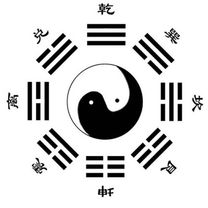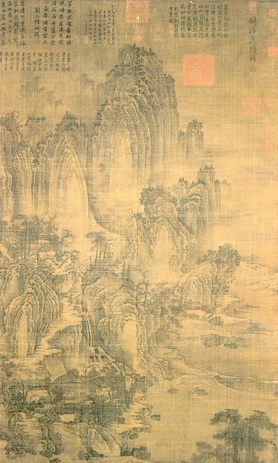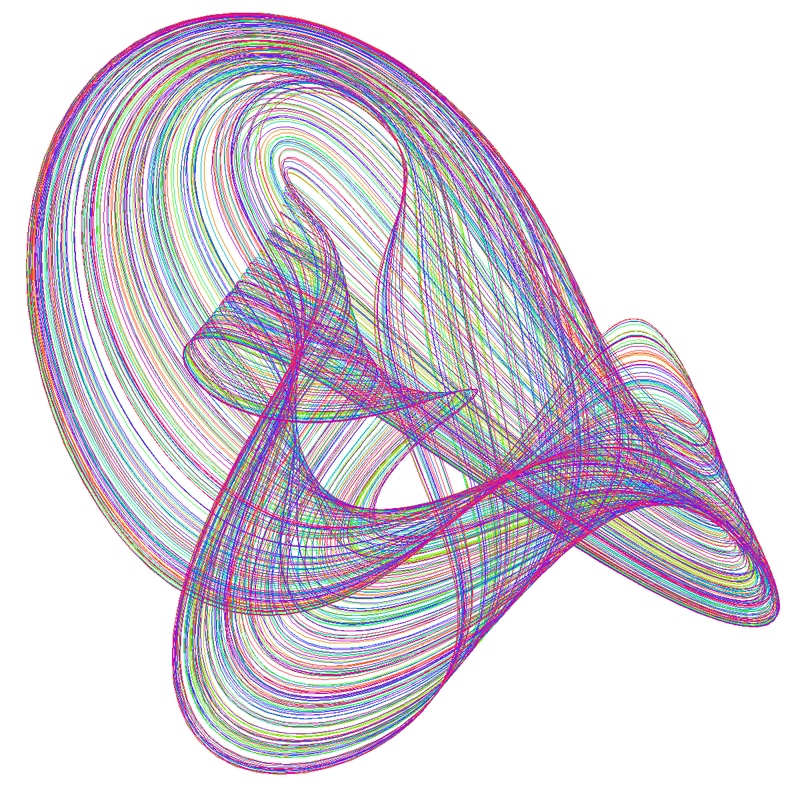SHARED PRINCIPLES
the cosmos is fundamentally comprised of li and qi
About a thousand years ago, during the Song dynasty, a school of philosophers synthesized Taoist, Buddhist and Confucian ideas to construct a comprehensive model of the universe. They saw the cosmos as comprised fundamentally of qi (pronounced "chi") which refers to all energy and matter; and li (pronounced "lee") which refers to the principles by which all the qi is organized. This framework is consistent with modern complexity theory and systems biology, and forms the cosmological foundation for liology.
the universe is in constant flowThe traditional Chinese understood that nothing in the universe is ever fixed, but is in a state of continual transformation through the multiple dynamical flows of yin and yang.
This is an important principle of liology and informs the understanding of key concepts such as self, consciousness, values and meaning. |
everything is connected

Traditional Chinese thinkers saw everything in the universe as being connected. This means that whatever you do, however big or small, affects everything else in the universe to a differing degree. The principles by which everything connects with everything else are the li, which acts in waves through the qi, just as sound is carried in waves through air or water.
Imagine throwing a pebble into the middle of a still pond, creating ripples through the water. If you then throw another pebble, new ripples are created which interact with the first set of ripples causing a more complex pattern. Everything you do in your life creates li, or ripples, like these in the qi of the universe, impacting those around you in ways that you might not anticipate.
This understanding of the ultimate connectivity of everything in the universe through the li is a fundamental principle of liology.
Imagine throwing a pebble into the middle of a still pond, creating ripples through the water. If you then throw another pebble, new ripples are created which interact with the first set of ripples causing a more complex pattern. Everything you do in your life creates li, or ripples, like these in the qi of the universe, impacting those around you in ways that you might not anticipate.
This understanding of the ultimate connectivity of everything in the universe through the li is a fundamental principle of liology.
achieving harmony is essentialGiven an understanding of the universe as resonating with li, it becomes crucially important to achieve harmony in your life with all the different forces resonating within you and around you. Following traditional Chinese thought, liology emphasizes the importance of harmonizing with all aspects of life, including your own internal emotions, the natural world, and the dynamics of the trajectory that your life is on.
value and meaning are intrinsic to the natural worldIn contrast to monotheistic thought, which looks for value and meaning in a transcendent dimension, Chinese thought sees them as immanent: intrinsic to the natural world, within ourselves, and in our relationship to everything around us.
|
REINTERPRETATIONS
the tao is a holarchy comprising all natural attractors
|
|
Traditional Chinese texts, such as the Tao Te Ching, saw the Tao as unnameable, as the mysterious principle that flowed through everything. While embracing the mysterious and spiritual nature of the Tao, liology also understands it in terms of modern dynamical systems theory.
In modern science, natural attractors [also known as strange attractors] are complex dynamical patterns that are both robust and flexible, continually fluctuating but within relatively stable parameters. Examples of natural attractors are everywhere in the natural world: weather patterns, waves, growth cycles, ecologies and organisms. Natural attractors also exist within us, as breathing cycles, heart rates, chemical and hormonal levels, patterns of thought, emotions and moods. Liology understands all these natural attractors to exist within a holarchy, incorporating attractors within them and existing within even greater attractors. The traditional Chinese concept of the Tao can be understood within liology as the holarchy which comprises the entire set of natural attractors of the universe. |
civilization has lost connection with the tao

Traditional Taoist thought sees the rise of civilization as a process by which we have lost connection with the Tao. In the words of Zhuangzi: "In uncarved simplicity the people retain their true nature."
Liology understands this process to have arisen as a result of the symbolizing powers of the prefrontal cortex (pfc), which is uniquely developed in humans. These powers have enabled humans to develop language, agriculture, art and technology - everything, in fact, which separates us from the rest of the animal kingdom.
Liology doesn't view this process as intrinsically bad - on the contrary, it puts humanity at the apex of four billion years of evolution on the earth. On the other hand, the conceptual consciousness of the pfc causes us to experience dukkha, a sense of alienation from ourselves and the world. And the runaway results of our pfc-mediated culture and technology have led our global civilization on an unsustainable trajectory, which has been called the "tyranny of the pfc."
Liology believes that the pfc can, instead, be used as an agent of harmonization, and that through integrated practices we can train ourselves to re-harmonize with the Tao in the world around us and within ourselves.
Liology understands this process to have arisen as a result of the symbolizing powers of the prefrontal cortex (pfc), which is uniquely developed in humans. These powers have enabled humans to develop language, agriculture, art and technology - everything, in fact, which separates us from the rest of the animal kingdom.
Liology doesn't view this process as intrinsically bad - on the contrary, it puts humanity at the apex of four billion years of evolution on the earth. On the other hand, the conceptual consciousness of the pfc causes us to experience dukkha, a sense of alienation from ourselves and the world. And the runaway results of our pfc-mediated culture and technology have led our global civilization on an unsustainable trajectory, which has been called the "tyranny of the pfc."
Liology believes that the pfc can, instead, be used as an agent of harmonization, and that through integrated practices we can train ourselves to re-harmonize with the Tao in the world around us and within ourselves.
PRINCIPLES NOT SHARED WITH LIOLOGY
belief in the literal existence of ancestral spirits
In traditional China, there was a widespread belief that ancestral spirits continued to exist and could affect what happened to you in the present. Liology does not share this belief. Liology does, however, recognize that we affect others through our impact on their li, and this impact can lead to changed attractors which could exist long after our death. In this way, ancestral spirits could be said to exist, but not in the literal way that the traditional Chinese believed.
primacy of family as the source of identity
|
Traditional Chinese culture was - and still is - very family-oriented, such that your family would generally be the primary source of your identity as a human being.
While liology honors the connection of family, it sees the most important source of human identity as being the entire human family, and even this as being subsumed within the universal family of all sentient beings. Since our identity ultimately determines our values, this essential connectivity between humans and the entire natural world is an important factor for liology in developing a systematic understanding of morality and human ethics. |
patrilineal hierarchy
Traditional Chinese culture placed great emphasis on hierarchy within family and social structures, and gave primacy to men over women in establishing lines of authority. Liology rejects patrilineal hierarchy and any gender-based discrimination as values that arose in traditional agrarian societies and have no place within our modern world.





